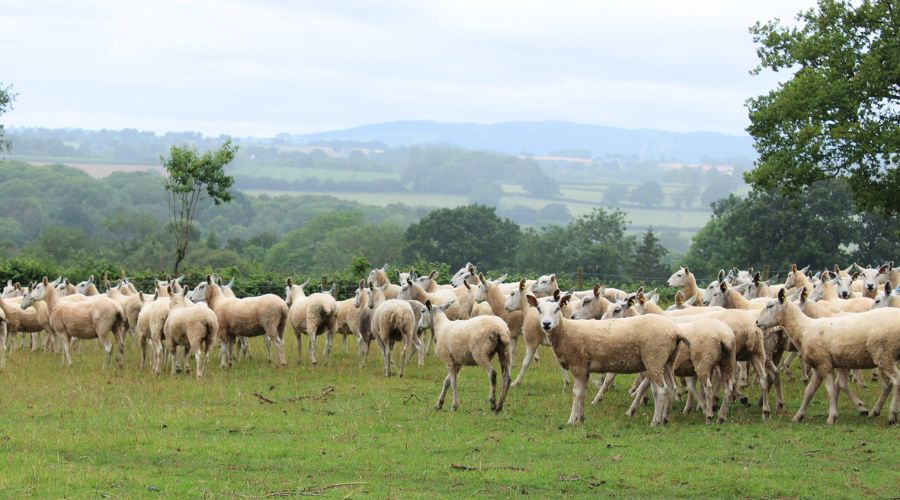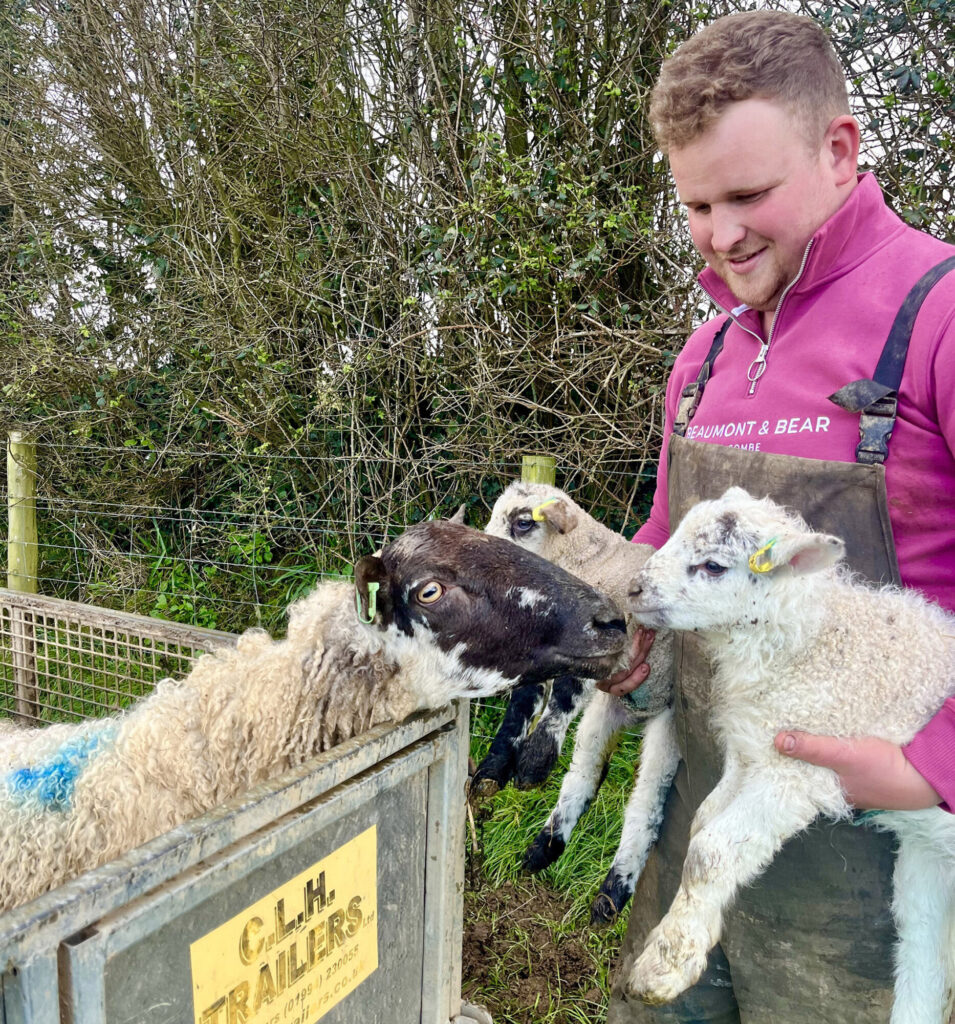Cornish farmer shares tips on how to improve flock health ahead of tupping
23rd August 2024
Cornish beef and sheep farmer James Warwick has shared timely advice on how to improve flock health ahead of tupping.

Mr Warwick suggests that concentrating on ewe nutrition and improving body condition is paramount.
He said: “We always like to make sure ewes get a good flush of grass for about three to four weeks, depending on body condition.
“This increases energy levels ahead of what can be a taxing and stressful period for ewes. I also administer a mineral drench or bolus, and treat the flock for worms and liver fluke.”
Body conditioning process

The farmer explained that part of this body conditioning process is helping ewes to reach an optimum weight ahead of tupping.
“We aim for a body condition score of 3 to 3.5. This requires the heavier ewes, post-weaning, to have minimal grazing and water to bring their weight down.
“However, leaner ewes can be provided with better quality grass once they have been dried off. We find that scoring and splitting ewes enables us to manage their diet and optimise their weight before the tup,” he continued.
While ewes are a clear focus before tupping, the rams need to be fit and ready to play their part too.
Mr Warwick added: “Rams need to be fit, so an MOT to check everything from feet and teeth to testicles is important to improve performance. Like ewes, we look at body condition and administer a bolus or drench along with a fluke and worm dose.
“We also tend to have at least a couple of extra rams on farm because it is preferable to having empties.”
Reduce stress
The Cornish farmer also seeks to reduce any stresses on ewes ahead of tupping.
“Flushing ewes, running them through a footbath and giving them space to relax is an important step to increasing conception rate.
“It is the same for rams that will be working for up to seven weeks, so providing a good gap between any treatments and other work can help to reduce stress,” he said.
The tupping period is often debated, and Mr Warwick believes that the use of teaser rams 14 days before at a suggested ratio of one per 100 ewes.
This will tighten the lambing period, with most ewes served at either 18 or 25 days after the teaser is first introduced.
“We use teasers for the earlies as oestrogen levels start to increase when the daylight hours of autumn reduce. We find that about 75 percent of our lambs come in the first two to three weeks which is a big help to our lambing preparations and the organisation of other work on the farm,” he concluded.
Read more livestock news.
